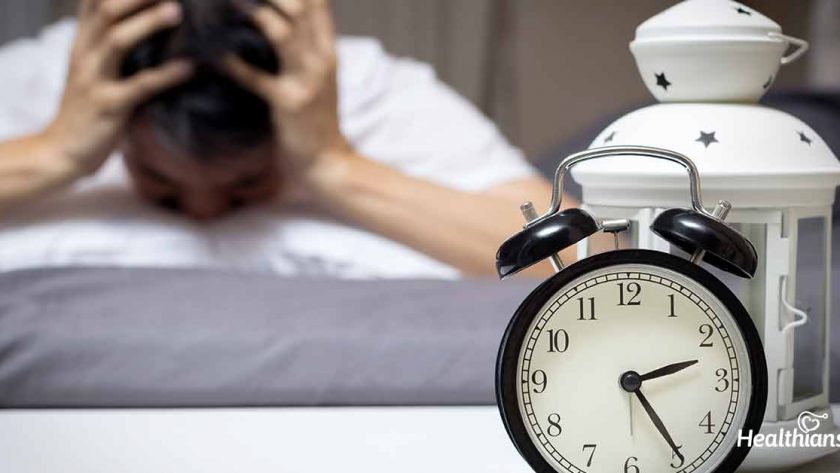[ad_1]
Contributed by: Priyaish Srivastava
Introduction
Sleep disorders have become very common, especially after the outbreak of the Covid-19 pandemic in 2020. When it comes to the pandemic, the fear of getting infected is the primary cause of the increasing sleep disorders. However, generally, people find it difficult to sleep leading to sleep disorders due to a variety of social factors such as work pressure, family issues, and financial & economic problems.
A study conducted by AIIMS Rishikesh shows that the percentage of people who fall asleep in less than 30 minutes is reduced from 79.4 percent to 56.6 percent due to the lockdown. The researchers also found a notable increase in the percentage of people who take more than 60 minutes to fall asleep from 3.8 percent to 16.99 percent.
Fact: India stands second as the most sleep-deprived country with an average of 7 hours of sleep, behind Japan where the average is 6 hours and 47 minutes of sleep.
To find a solution to this problem, you first need to understand the pre-pandemic and post-pandemic triggers of sleep disorders, the symptoms of sleep disorders, and overall health complications of several sleep-deprivation-related illnesses.
Decoding the sleeping disorders triggers
Some of the most common triggers of sleeping disorders include:
- Due to the recent work-from-home culture, many tend to wake up just a few minutes before office hours and sit straight for work. The excess of sleep or the lack of it, depending upon the number of hours slept can increase the chances of sleep disorders.
- Using gadgets is one of the primary reasons for interrupted sleep patterns. The blue light emitted from gadgets (smartphones, laptops, tablets, etc.) keeps your mind alert and obstructs the sleep cycle by halting proper melatonin production.
- The increased competition also increases the levels of stress and anxiety, which leads to an interrupted sleep cycle.
- Increased workplace competition and pressures increase stress levels and anxiety, which leads to an interrupted sleep cycle.
- Poor lifestyle habits like excessive alcohol or caffeine, and less or no physical activity, also wreak havoc on the sleep cycle.
What are the different types of sleeping disorders?
Insomnia refers to the persistent problem of falling or staying asleep. It usually occurs due to poor sleeping habits, depression, anxiety, lack of exercise, chronic illnesses, even certain medications. Insomnia can give rise to complications like concentration problems, irritability, and unintentional weight gain. It can also negatively influence your work in the office.
It is a serious condition that causes breathing problems while you’re asleep as your body inhales less oxygen which leads to shortness of breath. You may also wake up in the middle of your sleeping hours due to reduced oxygen levels. There are two types of insomnia, namely:
-
- Obstructive sleep apnea: In this condition, the flow of air to the lungs is obstructed due to the narrowing of the airways
- Central sleep apnea: In this condition, there is a problem in the connection between your brain and the muscles that manage your breathing.
It is a sleep disorder that leads to involuntary body behaviors while you are asleep. For instance- sleepwalking, sleep talking, groaning, nightmares, bedwetting, teeth grinding, and jaw clenching.
RLS is a condition in which you experience an overwhelming urge to move your legs or a tingling sensation in your legs. Although you can experience these symptoms during the day, it is more common during the night.
It is a condition in which you get sudden sleep attacks. In other words, narcolepsy can make you feel very tired and you can fall asleep without warning.
Now that you know the triggers and the types of sleep disorders, continue reading to learn about their symptoms
Symptoms of sleeping disorders
Sleep disorders are one of the most common problems worldwide. Here are some of the symptoms that you should be on the lookout for:
-
- Difficulty in falling asleep or staying awake
- Fatigue during the entire day
- Strong urge to take naps throughout the day
- Changes in breathing patterns
- Willingness to change sleeping postures while falling asleep
- Unintentional changes in the sleep and wake cycle
- Irritation and anxiety
- Lack of concentration and weak performance in work, college, or school
- Depression
- Unintentional weight gain
Although it is a fact that sleeping disorders are very common, it should be noted that leaving the condition untreated can lead to several health complications, which include:
Sleep deprivation can increase your blood pressure and heart rate which impacts your heart health. This condition is termed hypertension or high blood pressure and can give rise to symptoms like severe chest pain, headache, anxiety, and shortness of breath.
Sleep deprivation increases the cortisol levels and the stress hormone which gives rise to anxiety, frustration, and stress and leads to emotional eating or poor eating patterns, which gives rise to obesity. Your stomach produces a hormone called ghrelin which is associated with long-term sleep deprivation. If there is an excessive amount of ghrelin, you’ll feel hungrier and eat more, and in turn, become obese.
The part of your brain which controls the circadian rhythm also produces reproductive hormones. Regularly sleeping less than 7 hours/night decreases testosterone levels in men and the hormones that lead to ovulation in women.
Sleep helps the brain to form memories and organize thoughts. Lack of sleep can lead to both short-term and long-term memory loss by deteriorating brain health.
Natural ways of improving sleep cycle
A healthy sleep cycle is necessary for your overall well-being and you can achieve it easily by making small and healthy changes in your lifestyle. These include:
-
- Meditation
- Yoga
- Regular exercise (both strenuous and non-strenuous)
- Getting a massage
- Restrict light exposure at least 30 minutes before you sleep
- Start a healthy diet
- Eat less sugar
Final thoughts
Ignoring the body’s urge to sleep has now become common due to the amount of stress you take and the amount of work you do. Although the adverse effects of sleep deprivation are commonly ignored thinking it may not have any serious impact on your health, and irregular sleep cycle can lead to severe health complications as mentioned above. However, you can easily improve your sleep cycle by implementing small, yet extremely effective changes in your lifestyle.
If the health complications are persistent even after lifestyle changes, we recommend you get an early diagnosis and medical attention to manage the condition.
Did this blog help solve your queries regarding sleep disorders? Tell us in the comment section and reach out to us for any other queries.
Book The Full Body Health Checkup Today!
This post has already been read 19 times!
[ad_2]
Source link




